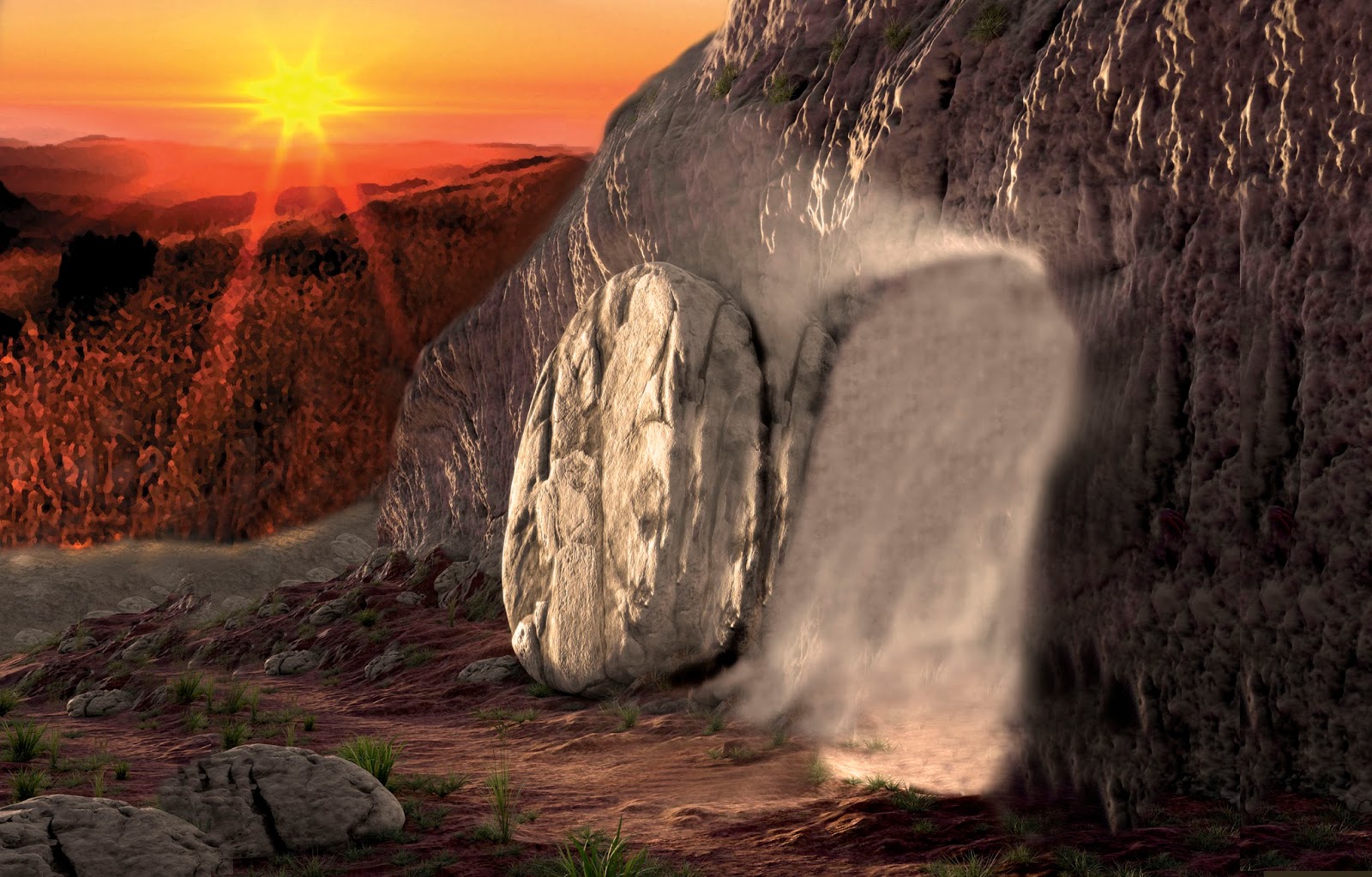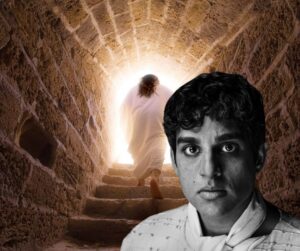Recently, I got a direct message on the Cerebral Faith Facebook page by someone claiming that I failed to establish the historicity of Jesus’ resurrection. The person wasn’t an unbeliever, surprising. He was a Christian and did affirm the resurrection. He just didn’t think I succeeded in making a case for it. The following is the conversation we had. This is posted with his permission. By the way, I make the case for the historicity of Jesus’ resurrection in my book “Inference To The One True God: Why I Believe In Jesus Instead Of Other Gods” and in blog posts such as “The Minimal Facts Case For Jesus’ Resurrection PART 1” and “The Minimal Facts Case For Jesus’ Resurrection PART 2”
This conversation is being posted because I thought it would be edifying to those who may have the same objections to the minimal facts approach.
Messenger: I don’t think your evidence for the existence of Christ is good enough.. it is just based on assumptions with no crucial evidence
Evan Minton: I don’t know why you would say that, my arguments for the existence of the historical Jesus haven’t presupposed anything. In article “Did Jesus Exist?”1, I used the standard criteria of historicity that historians apply to any other figure or event in history. For example, the criterion of multiple attestation states that if you find something in 2 or more independent sources, it’s more likely to be a historical fact than if you found it in only one. The logic behind this historical principle is that the more and more independent documents you find someone or some event talked about in, the less and less likely it becomes that it’s made up.
We have sources that talk about Jesus both inside and outside The Bible, both Christian and non-Christian. In all, the sources count up to 42. This includes non-Christian sources like Josephus, Tacitus, Pliny The Younger, Christian non-biblical sources like Polycarp and Ignatius, and biblical sources like the gospels and Paul. To cling to Christ mythicism, you essentially have to say that ALL of these people conjured up the same fictional character and proceeded to treat him as a historical figure. This stretches the bounds of plausibility for any thinking person.
This is why no credible historian debates Jesus’ existence. They’ll debate whether he was the son of God, whether or not he actually rose from the dead, but they won’t dispute whether a man named Jesus of Nazareth walked the Earth. The evidence is just too powerful. I would advise picking up two sources on this: “Shattering The Christ Myth” by James Patrick Holding, and “Did Jesus Exist” by Bart Ehrman. The latter is written by a man who is an agnostic and has actually been an outspoken critic of Christianity.
Messenger: when I say.. “the existence of Christ “…of course I mean his resurrection and death..
who’s to say he wasn’t just another prophet,.. who walked the earth
Do we have concrete evidence that he died and resurrected beyond your assumptions on various principles..like principle of embarrassment..
I mean come on…seriously?
there is no concrete evidence to suggest that
just assumptions..
Evan Minton: My apologies, I thought you were speaking of the Jesus Mythicist movement. Do we have concrete evidence that he died and resurrected? Yes. Beyond my assumptions on various principles? Why do you say those are assumptions? These principles of historicity are used by historians all the time in coming to historical conclusions. For example, historians would conclude that George Washington had diarrhea while horseriding in the open countryside because such an admission is embarrassing to the one who wrote it (i.e Washington) and therefore it makes no sense to believe Washington made the whole thing up. The conclusion would be even stronger if they found 3 independent journals written by Washington’s friends where they record the same incident. There, you have multiple attestations. What would be the odds that Washington and these 3 other guys would all make up the same incident?
Non-Christian historians even use these principles when examining the life of claims and Jesus, and they have come to the same conclusions as Christian historians have regarding certain facts such as his death by crucifixion, his empty tomb, and the postmortem appearances to The Disciples, Paul, and James. These non-Christian historians (e.g Gerd Ludemann) come to these conclusions using these principles of authenticity and applying them to The New Testament documents. These “Principles Of Authenticity” are standard procedure when doing history.
I don’t know why you take an issue with that approach. There are no assumptions involved. I don’t assume the New Testament is inspired when making my arguments. I don’t even assume the criterion of authenticity are good reasons to take an event as true. I explain why embarrassment, multiple attestations, early testimony, and so on, are markers of historicity. In other words, there are reasons given for why the principle of embarrassment and multiple attestations are markers of historicity.
Messenger: so what if The people who wrote the Bible knew about this principle and used an embarrassing line in the Bible intentionally… knowing that people will think the wouldn’t normally put it there and therefore assume it to be true .
what if it was all planned.. ?
come on.. people can do crazy stuff when the want to get people to believe something…
so like I said they are not concrete enough and you know it..
it is a probability.. it could be true, it could not be true.. there are no clear facts
if I wasn’t a Christian… it wouldn’t convert me
Evan Minton: I’ll admit that that’s possible, but it’s not plausible. For one thing, these historical criteria are a relatively modern procedure. I don’t think the New Testament authors would have known them any more than they would have known about the scientific method.
Secondly, you could use that argument against ANY historical event, such that finding out about the past would be impossible. You could always say “Well, maybe they were purposefully trying to pass these historical tests to get future historians to believe them.”. It would undermine the entire field of historical research and we would have to conclude that history cannot be known.
Thirdly, what do you mean by the term “concrete”?
Messenger: Firstly ,maybe the didn’t really know it as principle of embarrassment or multiple attestation etc..
but the knew what they were doing and the implications it would have.
people were pretty brilliant then.. mind you
secondly.. you can’t use it against all historical fact, probably most ,but not all.. because some historical fact actually have concrete and clear evidences of there existence .
but yeah, you could use against most, which means everything lies under probability ,that’s why you would always see different contradicting information about a particular event from different sources..
only the ones with concrete evidence or in most cases more popularity is accepted or acceptable
but it doesn’t rule out the possibility that it could be false.
now concrete means here means
solid, not abstract, firm and tangible evidence that can’t be disputed beyond reasonable doubt
if I told you.. I was bleeding and you ask for evidence.. I would show you my hands, with an open wound that you can see and even probably feel that it is bleeding.. now that’s concrete evidence, beyond reasonable doubt. …you would agree with me that there are so many other examples of such concrete, indisputable evidences
but in terms of Jesus resurrecting… it is based on assumptions and theories… which of course you have admitted could be possible not to be true..
any slightest chance that it could be false has already put it into question …and this time the chances are within reasonable doubt.. because some historical events that were thought to be true have been proved false .
Am not saying your theories and principles are not true am just saying that it could be false as well.. it is not concrete enough to be definitely true beyond any reasonable doubt.
for something that concerns divinity.. the evidence for it needs to be equally sublime and overwhelming that it can’t be disputed from any angle…
it can hardly convert a reasonable non Christian
Evan Minton: First of all, again, it’s possible that they could have contrived their accounts in such a way as to make it more believable, but is it probable? I don’t think so. In fact, in the case of the empty tomb, as I’ve said in my book and in my articles, it would have been detrimental to include women as the chief witnesses, given their low status in that patriarchal society, and the commonly accepted belief that they’re habitual liars.
Secondly, yes, it would apply to all of history. Let’s go back to my Washington illustration. Imagine a historian arguing “George Washington most likely soiled himself when riding out in the countryside. We know this for two reasons: (1) That’s an awkward thing for anyone to mention about themselves. Why would he make this up if it weren’t true? (2) Several of Washington’s travelers independently recorded the incident. What are the odds that all these men made up the same thing? So, by the principles of embarrassment and multiple attestations, it’s highly probable that this actually occurred.” and then imagine someone responding “Well, maybe Washington included this in his account because he knew you’d make that argument. He was purposefully trying to pass the criterion of embarrassment.” Sure, there’s a small possibility that that’s the case, but it isn’t likely. And no historian would say “Yeah, you’re right. I guess we don’t have good grounds for affirming Washington soiled himself after all.”
Thirdly, this argument doesn’t even work for multiple attestations, as this principle, by definition, involves multiple authors penning an event independently of one another.
Fourthly, you wrote “now concrete means here means solid, not abstract, firm and tangible evidence that can’t be disputed beyond a reasonable doubt” — I think the resurrection CAN be proven beyond a REASONABLE doubt, but I don’t think it can be proven beyond a POSSIBLE doubt. In other words, the evidence and arguments will never be so compelling that it coerces someone into affirming “He is risen!” What you seem to be asking for is evidence to such a high degree of certainty that someone cannot possibly walk away unconvinced. I’ll admit that that cannot be done. But, that doesn’t bother me as that cannot be done for ANY event in historicity. If someone wants to deny that something happened, they’ll deny that it happened, no matter how strong the historical attestation to it is. There are people who affirm that the holocaust never occurred. There are still people who believe the Earth is flat. There’s a difference between a reasonable doubt and a possible doubt. The only level of evidence for the resurrection that would even approach the “Beyond A Possible Doubt” standard would be what St. Thomas had: i.e sticking your finger in Jesus’ hands and side.
J Warner Wallace explains the difference between “Beyond A Reasonable Doubt” VS. “Beyond A Possible Doubt” well in this 3-minute video –> https://www.youtube.com/watch?v=8ZqoLzqzAks
I would put your doubts about the principles of authenticity, and the idea that the New Testament writers were purposefully trying to write stuff that would pass those historical criteria in the non-reasonable doubt category. It’s not just probable, and besides, as I said, it would prevent you from being able to do historical research into any event, as you could always apply that argument.
Messenger: well….the fact that you don’t think they did contrive it ,doesn’t mean it didn’t happen.
the point about women having low status is really a weak one…it doesn’t in any way make them unable to be chief witness, you would have to provide credible evidence to back that assumption up
now I don’t think that George Washington event is a good point too… because it is hardly a historical event .
Also it doesn’t apply to every historical event ….I have already told you that there are some events which have concrete evidence that can’t be disputed
In any case…so what if it can be applied to most of history..
it shouldn’t stop us from doing history .
but it still doesn’t mean all the historical events that happened or that are recorded are true.
Infact ,a lot of historical events that were strongly believed have been proved false…
has it stopped us from doing history?
no!
so the fact that an argument can be applied doesn’t stop us from doing history… it only puts a question mark on every historical event that doesn’t have concrete, overwhelming proof.
besides the Bible as we know it has passed through a lot of process and arrangements and selections and deductions with the Council of nicea being the most prominent agency in that….who is to say that it hasn’t been altered to suit certain demands and ideologies.
the Council of Nicea approved and decided how the Bible will be.. it has also been proved that such councils also approved and decided the evil “holy crusade ”
if so… what stops them from altering the Bible at will to suit and convert believers and skeptics for there selfish reasons..
besides you said you are not bothered about this concrete evidence, I have asked for not being available as it cannot be proved for other historical events .
well you should be worried
there is a difference between religion and mere history.
one can accommodate such arguments in ordinary man made history
but when you are talking about something divine,when you are trying to convince a person to begin to worship a being,..then yes you need an evidence that proves “he is risen “….unfortunately, while your evidence and theories follow certain man-made principles… it is not concrete enough to convert Someone.. ..simply because it can be disputed.
some thing that concerns such divinity has to be crystal clear and heavily undisputed to make one sure he is making the right decision without any doubts in mind.
finally, whos is to say, such principles won’t be applied to other religions, to prove about there existence.. I mean any apologist of other numerous religions could come out and provide historical facts that, his religion is the one and true religion
since, there can’t be Christianity and Islam ,and other religious at same time being true. …
it further debunks and brushes your argument aside in terms of it being the ultimate argument or truth.
which then means, it can’t be accepted as a standard for believing in Jesus resurrection and in Christianity as a whole…
It simply isn’t enough
Evan Minton: Well, 100% of historians would strongly disagree with you that the criterion of authenticity cannot be used to extract nuggets of historical information from sources. This procedure is used all the time in examining documents purporting to tell history, and historians draw conclusions on the basis of things like whether the event is attested independently in more than one source, whether the event contained embarrassing details to the author, would hurt the argument he was trying to make, or would embarrass someone he cared about, how early the documents are relative to the events they purport to describe.
Could the New Testament writers be trying to purposefully word things in such a way so as to make future historians confident in their writings? Sure. Could a time traveler have gone back in time and told them to do this to make apologetics easier? I guess. There’s a lot of possible doubts one could have here? But are they reasonable doubts? I don’t think it’s a reasonable doubt to argue that the NT writers were craftily trying to pass our modern day historical tests of authenticity. Your hyper-skepticism regarding the principles of authenticity is unwarranted and would be dismissed by any historian worth his salt, be they Christian, Muslim, Jew, atheist, etc. And they would do so for precisely the same reasons I am: (1) such a conspiracy is extremely unlikely, (2) it would undermine history. It would be to history what throwing out the scientific method would be to science.
The councils are of no concern to me in a minimal facts approach. Again, the minimal facts approach treats the New Testament documents no differently than it would any non-biblical documents: i.e as purely human writings which are subjected to the standard historical principles. So whether Matthew, Mark, and 1 Corinthians deserve to be canonized isn’t of concern to the minimal facts (MF) argument. The reason MF defenders use these documents rather than say, the gospel of Peter or the Gospel of Thomas (i.e the apocryphal gospels), is because it’s universally agreed upon that these are earlier than they are. Historians always prefer the earlier sources (e.g The epistles in the 50s and 60s, the gospels no later than the 70s and 80s A.D) to later ones (i.e the apocryphal gospels date to the second, third, and even fourth century). The earlier the source, the less likely for distortion of the facts to creep in.
You wrote “what stops them from altering the Bible at will to suit and convert believers and skeptics for there selfish reasons..” — The idea that someone, even a whole council could tamper with the biblical text is a vain notion. I’m trying to keep my responses as brief as I can so I’ll keep my explanation short. The fact is that each of the New Testament documents were so rapidly transcribed and so widely dispersed by the time any council even took place, that it would be impossible even in theory for someone to change what The Bible says. The best someone could do is tamper with a few manuscripts, but we would be able to spot the phonies by the numerous legitimate manuscripts in existence. It would not be unlike if someone tried to change parts of The Bible today. So many Bibles are already in existence that it would be impossible for anyone to get away with such a scheme. You can go into more detail about this topic in books like Doug Powell’s “The Holman’s Quicksource Guide To Christian Apologetics” and Lee Strobel’s “The Case For Christ”.
“.. it is not concrete enough to convert Someone.. ..simply because it can be disputed.” — The holocaust is disputed. Does that mean the historical evidence we have for it isn’t good enough? The spherical nature of Earth is disputed by some? Does that mean we aren’t justified in rejecting the flat Earth? The fact that something can be disputed doesn’t seem like good grounds for not believing it. Applying this philosophy consistently would lead to skepticism about everything.
“finally, whos is to say, such principles won’t be applied to other religions, to prove about there existence…” — Sure, I’d have no problem with these principles being applied to say, The Quran, or the Hadith. But would the outcome be the same? We’d have to read these documents and comb them for instances to pass historical tests to find out. Moreover, even if we could validate some of the claims in them, it wouldn’t necessarily mean that the religion is true. In the minimal facts approach, even atheist and other non-Christian historians conclude that (1) Jesus died by crucfixion, (2) His tomb was found empty the following Sunday, (3) The 12 disciples believed they saw him alive after His death, (4) the church persecutor Saul of Tarsus converted on the basis of what he believed was a post-mortem appearance, and (5) the skeptic James converted on the basis of what he perceived as a post-mortem appearance.
Now, these non-Christian historians try to find ways to explain these facts in naturalistic ways, but they do affirm them nonetheless, and, moreover, they’ve affirmed these as a result of applying the historical tests of authenticity. Now, I might read the Quran and come to the conclusion that it’s highly likely that Muhammad had a 9 year old wife on some principle like embarrassment, multiple attestations, early testimony, or what have you. I might conclude that he actually got his revelation in a cave. But I might be able to explain these facts in ways consistent with Christianity (e.g Muhammad wrote the Quran himself in a cave, a demon gave him the book, etc). Skeptics do the same with the minimal facts. Though if you’ll read my article “The Minimal Facts Case For Jesus’ Resurrection PART 2”, you’ll find that none of their naturalistic explanations are tenable. The ONLY one able to explain all 5 facts is a miraculous resurrection.
The conversation went on after this, but I opted not to post anymore for the sake of non-lengthyness. I was afraid posting any more of the back-and-forth would cause my readers to lose interest.
———————————————————————————–
Footnotes
1: “Did Jesus Exist?”, by Evan Minton, December 21st 2014, http://cerebralfaith.blogspot.com/2014/12/did-jesus-exist.html
Discover more from Cerebral Faith
Subscribe to get the latest posts sent to your email.




